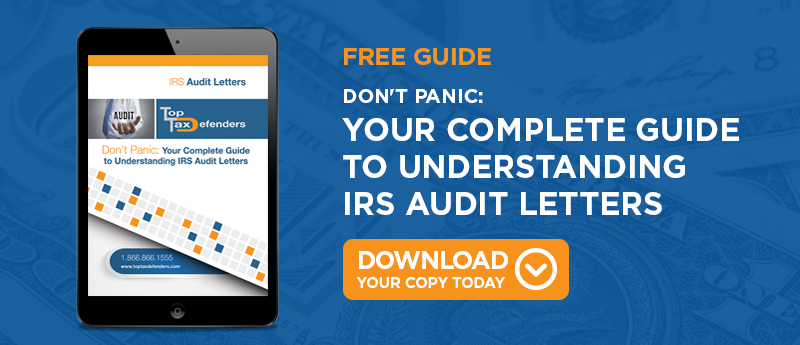How and When the IRS Communicates with Taxpayers
Getting a letter or a phone call from the IRS could put you in a state of panic. You might wonder what is wrong with your taxes and if you are about to go to jail. You can make any communication with the IRS easier and less stressful by knowing how and when this government bureau will contact you about your tax returns.
Why the IRS Contacts Taxpayers
The IRS is tasked with collecting every penny owed to the federal treasury. It carries out this duty by scrutinizing tax returns and payments as they are submitted.
While it is true the IRS will notify people whom they intend to audit, this agency also makes contact with taxpayers for other reasons. Some of the reasons why the IRS may send you a letter include:
- notifying you of a mistake on your tax return
- alerting you to an underpayment or over payment on your taxes
- telling you about new taxes that you owe
- alerting you to penalties and interests on tax debts
The letter from the IRS will give you precise instructions on how and when to answer. You may not have to visit your local IRS office but instead resolve the issue through simpler means.
It is critical that you do not toss aside the letter and ignore the IRS altogether. If you are unsure of how to resolve the issue or need help following the directions in the letter, you should hire a tax professional to assist you.
As you respond to the IRS letter, you should also make copies of the documents required to address the issue. You should never send it the originals. Unless otherwise directed in the letter, you typically have up to 30 days to respond to the IRS notification mailed to you.
Detecting Fraudulent IRS Communications and Scams
Scam artists know that millions of families receive substantial tax refunds each year. In a bid to steal as much money as possible along with taxpayers' personal information, scammers attempt to fool people by pretending to be IRS agents.
Scam artists send out emails, make phone calls, and even mail letters that look like they really come from the IRS. If you are not aware of these scams, you could lose not only your tax refund but also your personal identity information.
As such, it is critical that you know how to detect an IRS scam before you become an unwitting victim. To start, the IRS will never email you about a tax debt. Instead, it will send out a letter on official IRS letterhead stationary notifying you of a debt you owe to the government.
Likewise, the IRS rarely calls taxpayers unless you have already established this form of communication with an IRS agent or investigator. Most phone calls come from local IRS offices and involve confirming appointments.

If someone who says he or she is an IRS agent appears at your door, you are well within your rights to ask for the person's credentials. IRS employees carry with them two forms of identification: a government-issued pocket commission as well as a PIV, or a Personal Identity Verification Credential. If the person fails to produce these two forms of ID, you should refuse to speak with him or her and report the person to the police.Last, IRS agents are respectful and polite to taxpayers with whom they speak. They will never:
- threaten or be hostile with you
- ask for your credit or debit card number over the phone
- ask for payment with a prepaid card
- tell you that you will be arrested, deported, or face other legal action for not paying
- insult you for not paying your taxes
A caller who engages in this type of behavior reveals himself or herself to be a scam artist and someone who should be ignored.
The IRS has the right to communicate with taxpayers about their tax returns. It is important for you to know in what way the IRS will notify you about a debt, penalties, audits, and other matters. You should also know how to avoid falling victim to an IRS tax scam.




